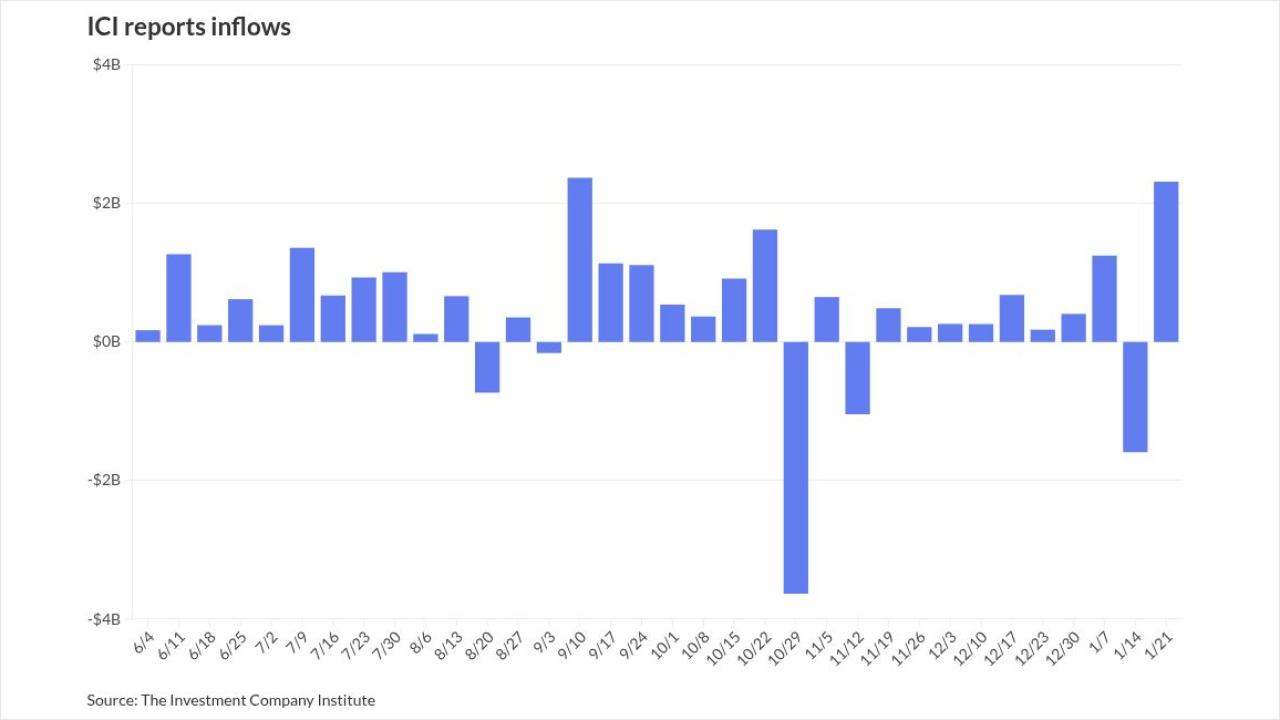Facing projections its unfunded liability for retired city worker benefits like health care would balloon to about $9 billion over 30 years, Houston last week created a trust, which along with previous cost-saving measures, is aimed at greatly shrinking that obligation.
The other post-employment benefits (OPEB) trust was part of a $6.2 billion all-funds, fiscal 2024 budget, which includes $2.9 billion of general fund spending, the Houston City Council passed in a 15-2 vote Wednesday.
"In this budget, we are creating that trust and there is $10 million put to starting that trust and it will require continuous payments and those payments will incrementally increase," Mayor Sylvester Turner told the city council ahead of the vote. "If we stay on course, then we would be dropping that unfunded liability for OPEB all the way down to $1.1 billion. That would be huge."

After tackling its huge unfunded pension liability in 2017, the nation's fourth largest city took steps effective Jan. 1, 2022, to stop subsidizing certain retirement benefits for new employees and reduce subsidies for some current employees depending on their years of service and age.
The move will save about $4.5 billion over 30 years, according to Turner, who leaves office in January after serving two terms. Houston, which ended fiscal 2022 with a $2.3 billion unfunded OPEB liability, has been funding the annual cost on a pay-as-you-go basis with $69 million budgeted for fiscal 2024, up from an estimated $66 million in fiscal 2023.
S&P Global Ratings, which rates Houston's general obligation bonds AA with a stable outlook, cited in a September report the city's large pension and OPEB obligations as a credit weakness with contributions amounting to "an elevated 17% of total governmental fund expenditures in 2021."
Houston Controller Chris Brown, who has been pushing for an OPEB trust for several years, said the challenge of funding it was finally overcome with the city reaching a revenue "high point" fueled by increased property and sales tax collections, along with federal COVID-19 relief money.
"Rather than add a bunch of recurring expenditures, we should be using this money to address and reduce long-term unfunded liabilities and that's exactly what we're doing with this OPEB trust," he said.
"It's a win for the employees, it's a win for taxpayers, it's a win for the administration to take a proactive measure to address a potential long-term liability that could threaten the city financially down the road," Brown added.
The city will be able to aggressively reduce the unfunded liability in part through the use of an investment rate of return, while establishing a vested benefit for employees, according to the controller.
The trust can only be used to pay OPEB benefits when it reaches a certain percentage of predetermined funding level and a third-party administrator, which the Houston Finance Department expects to oversee, is currently being sought for the trust, the mayor's office said in response to questions.
Most governments do not have OPEB trusts and some that do "don't really fund it or they nickel and dime it," according to Todd Kanaster, a S&P Global Ratings analyst.
Using a trust and investing its assets to address OPEB liabilities similarly to pensions garnered more attention after the Government Accounting Standards Board
Since 2016, the Government Finance Officers Association
"In most cases, employers can make long-term investments to cover these obligations through a separate trust fund that should, over time, result in a lower total cost for providing postemployment benefits," GFOA says on its website.
States and local governments had over $1.2 trillion in net OPEB liabilities at the end of fiscal 2019, with the biggest concentrations in New York, California, Texas, New Jersey, and Illinois, according to a
For states alone, Moody's Investors Service reported total adjusted net OPEB liabilities increased to $516 billion in fiscal 2021. New Jersey had the highest debt as a percentage of own-source revenue, while South Dakota, which ended retiree healthcare benefits, had no liability.
"A number of other states have very low OPEB liabilities because they only provide retirees with the option to purchase health and other insurance under the states' group rates, resulting in immaterial implicit rate subsidies for the most part," the rating agency said in a September 2022 report, adding OPEB liabilities are typically much lower than pension liabilities due in part to states' legal ability to change OPEB benefits.

Year-over-year medical cost inflation could lead to rapid increases for retiree health care, according to a January S&P report, which noted the median OPEB funded ratio "was a very low 6.1% as of fiscal 2021," with contributions failing to cover static funding levels for 75% of plans.
"Since most OPEB plans use a pay-go approach rather than pre-funding a trust, they are exposed to contribution escalation risk from inflationary increases to medical costs," the report said.
Kanaster said replacing medical cost volatility with market volatility, via the investment of OPEB trust assets over time, typically results in reduced volatility.
Another big city with a trust is New York, which had as of June 30, 2022, a net OPEB liability of $89.5 billion and just $5.4 billion in the trust, according to Moody's. In April, Moody's called New York's plan to shift roughly 250,000 retirees and dependents to a Medicare Advantage plan from a combination of Medicare and supplemental coverage a credit positive in that the city expects an annual savings of about $600 million.
"The advent of Medicare Advantage plans has resulted in some significant premium reductions for some plan sponsors, which in turn has reduced their OPEB liability," Rebecca Sielman, a principal and consulting actuary at Milliman, said.
Houston's creation of an OPEB trust follows previous efforts that shrank the city's unfunded pension liability to $1.5 billion.
With the liability for Houston's three retirement systems climbing as high as $8.2 billion, a 2017 Texas law put in place several reforms, including a 7% rate of return on investments for calculating actuarial assumptions and a requirement for the city to meet its annual contribution to eliminate the unfunded liability in 30 years.
Houston sold $1 billion of pension bonds in 2017 to
It emerged victorious in a legal battle to defend that law. The Houston Firefighters Relief and Retirement Fund
After a state appeals court dismissed the claims in August, the Texas Supreme Court in March declined to hear the case.





